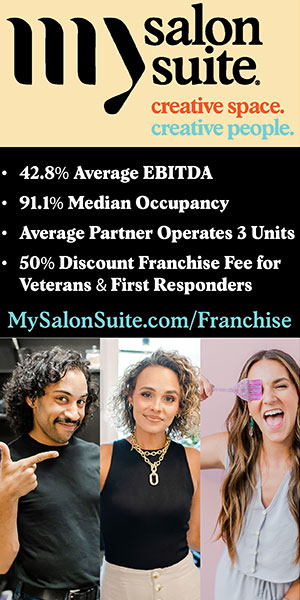'Brand' New Pick: Adding New Brands Takes Careful Consideration
Aziz Hashim, who was an engineer before deciding he liked restaurants and franchising better, has a detailed, systematic process for evaluating potential new brands. With 50 units (23 Domino's, 13 Popeyes, and 14 Rally's), first and foremost he's looking for brands in the restaurant sector. Three of his top considerations are:
- Quality of food. "If I don't think the food is of sufficient quality, I would not think about serving that food," he says.
- Management team. "Who's running the brand? Who's in charge at the franchisor level? What's their background, experience, and how comfortable are we at the direction they've set for the brand?" To find this out, he says it's imperative to speak with other franchisees about their experience with those leaders and the direction the company has set. "In the years ahead, how will they make it competitive, differentiate it?"
- Unit economics. Can you make money operating these restaurants, and does new unit development make sense? "It's not difficult to get the unit economics information, if you know how," he says. Hashim says there are a number of resources available.
First is the FDD and the information the franchisor provides in Item 19. "I prefer brands with more information than less," he says. "If you look carefully, there is some rich data about the operating metrics." He also speaks with franchisees who already operate that brand. "In our experience, they have been more likely to share than not," says Hashim.
Lenders can also provide useful perspective, within legal constraints. "We speak to our lenders, who may have exposure to that brand through other clients, because lenders get P&L information from their borrowers. That would be confidential, but we want to make sure our expectations regarding our pro forma would be in line with what other clients are delivering to the lender." For example, he says, "What are you seeing? You have 20 other clients. Are our numbers in range?" Lenders will not share information about their other clients, but they can say something to the effect of, "You're in the ballpark," he says.
Room to grow is another item on his checklist. "For us, one of the aspects for expansion with a new brand is its growth potential. We look for a development opportunity that is robust and can keep us busy for many years post-acquisition, so we can have something to strive toward," says Hashim.
"What kind of territory or new market potential are they giving us? How many new units, and is the development schedule reasonable? Can we achieve it? The franchising world is littered with undeveloped agreements," he says. "You can agree to build 30 stores, but it's not realistic in many cases. You need a proper development schedule and territory."
Geography is not a big factor for him. "We'll go wherever there's a market that makes sense and where we have growth opportunities. We're not geographically limited," says Hashim, who has units in his home city of Atlanta, as well as in Florida, Arizona, and California. However, he is quick to add, not every brand works in every market. "Sometimes brands are not as portable as the franchisor or franchisee may think." Factors inhibiting local acceptance of a new brand include differences in local palates, poor real estate choices, and insufficient marketing. "It's not that they're not good and have a good product, but sometimes they don't translate."
When considering a deal to bring a brand into a new market, there is no certainty about how the brand will be accepted. "You're the guinea pig and have to establish the brand there," he says. More often than not, he cautions, not enough marketing was done to create brand awareness in the new market. "You have to be very careful to make sure that's covered."
Timing is another factor. "Sometimes you can expand prematurely," he says. While he's eager to expand, he doesn't want to be a pioneer in a new market, despite its potential upside. "I like to go into markets where there is some presence and it's doing really well and build out from there. There's less risk." For him to consider a new brand, at least two or three years of history in a market is important. "It provides you with some sales numbers, how well it's done, and initial acceptance of the brand." For example, in Atlanta, he looks for half a dozen units, where the build-out is nowhere near fulfilled, with enough room to give him expansion possibilities.
Being the first to introduce a brand to a market has its upsides, as well as its risks. "There's no question about it. If you're the early developer you get the best real estate for that brand--and the benefits," he says. But he's not looking for that today. "I'm not as willing to take that risk of being the first person in the market."
For Hashim, the size of the franchisor also matters. "I prefer on the larger side because of the marketing clout and the resources the brand can bring to bear. I have nothing against emerging brands, but there's not enough scale." And definitely no to brands smaller than his own company. In those cases, he says, "I have more resources at my disposal than the brand does to put against development. It doesn't make sense for us to be bigger than our franchisor."
Diversification is extremely important for Hashim. "That's the whole point of being multi-branded: to hedge, and make sure you have that diversification," he says. "We're very careful that we're operating at different price points, day parts, and geographies."
Share this Feature
Recommended Reading:
| ADVERTISE | SPONSORED CONTENT |
FRANCHISE TOPICS
- Multi-Unit Franchising
- Get Started in Franchising
- Franchise Growth
- Franchise Operations
- Open New Units
- Franchise Leadership
- Franchise Marketing
- Technology
- Franchise Law
- Franchise Awards
- Franchise Rankings
- Franchise Trends
- Franchise Development
- Featured Franchise Stories
| ADVERTISE | SPONSORED CONTENT |

$500,000
$250,000





 The multi-unit franchise opportunities listed above are not related to or endorsed by Multi-Unit Franchisee or Franchise Update Media Group. We are not engaged in, supporting, or endorsing any specific franchise, business opportunity, company or individual. No statement in this site is to be construed as a recommendation. We encourage prospective franchise buyers to perform extensive due diligence when considering a franchise opportunity.
The multi-unit franchise opportunities listed above are not related to or endorsed by Multi-Unit Franchisee or Franchise Update Media Group. We are not engaged in, supporting, or endorsing any specific franchise, business opportunity, company or individual. No statement in this site is to be construed as a recommendation. We encourage prospective franchise buyers to perform extensive due diligence when considering a franchise opportunity.